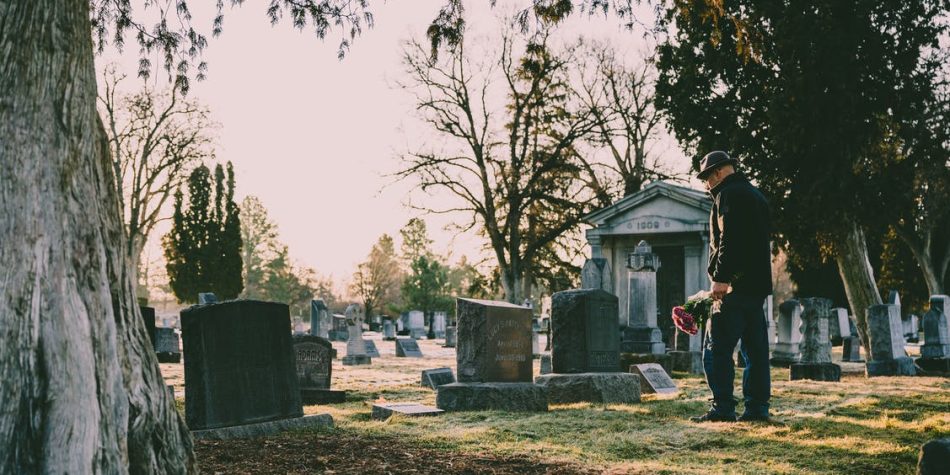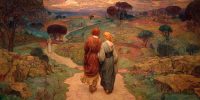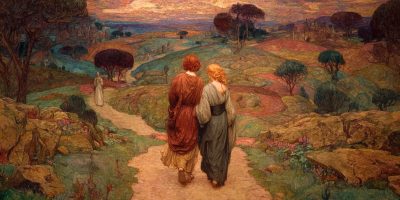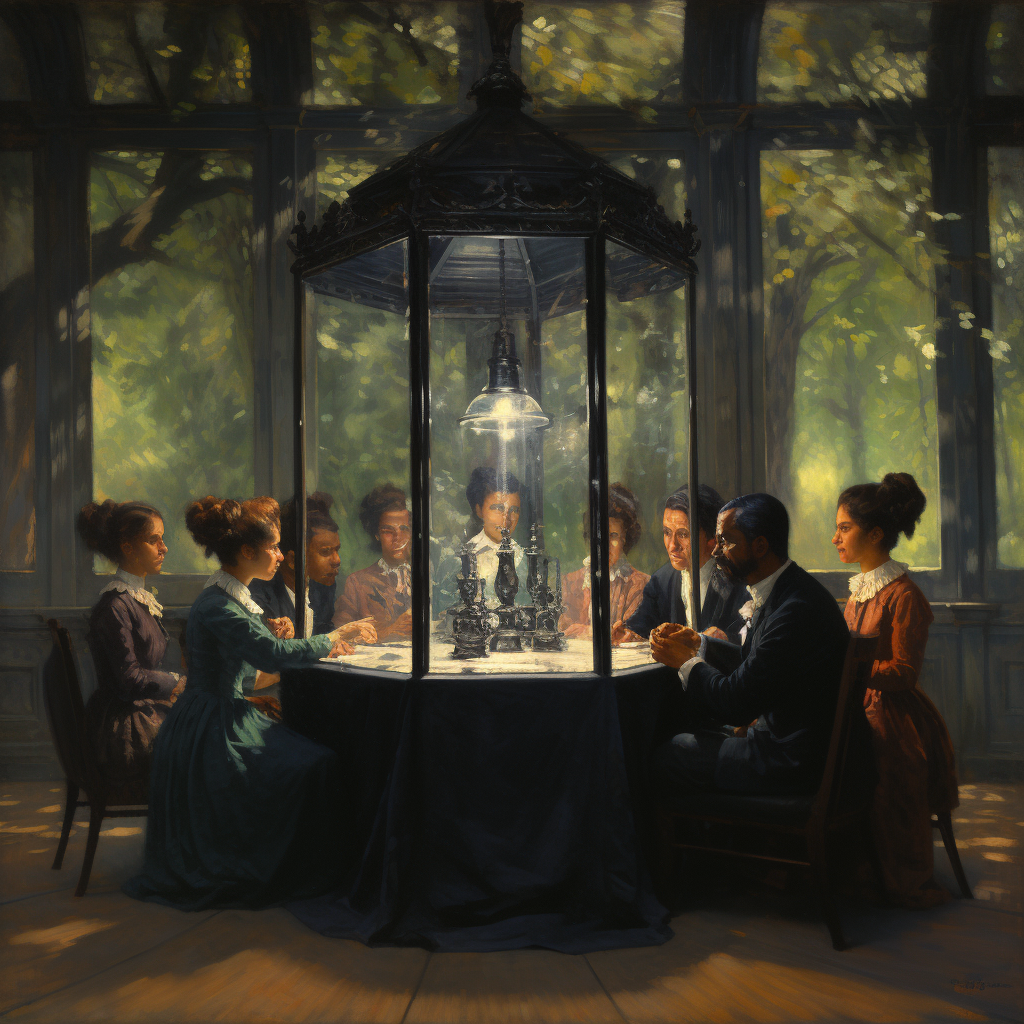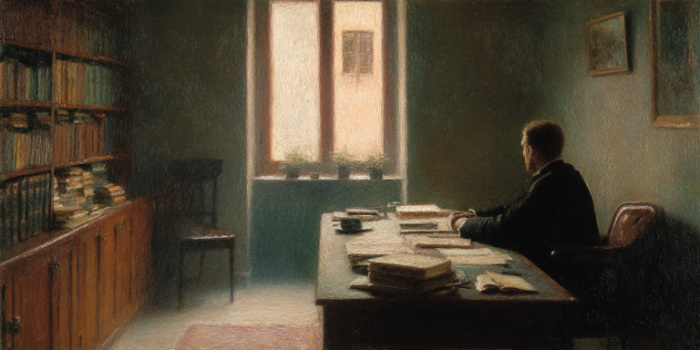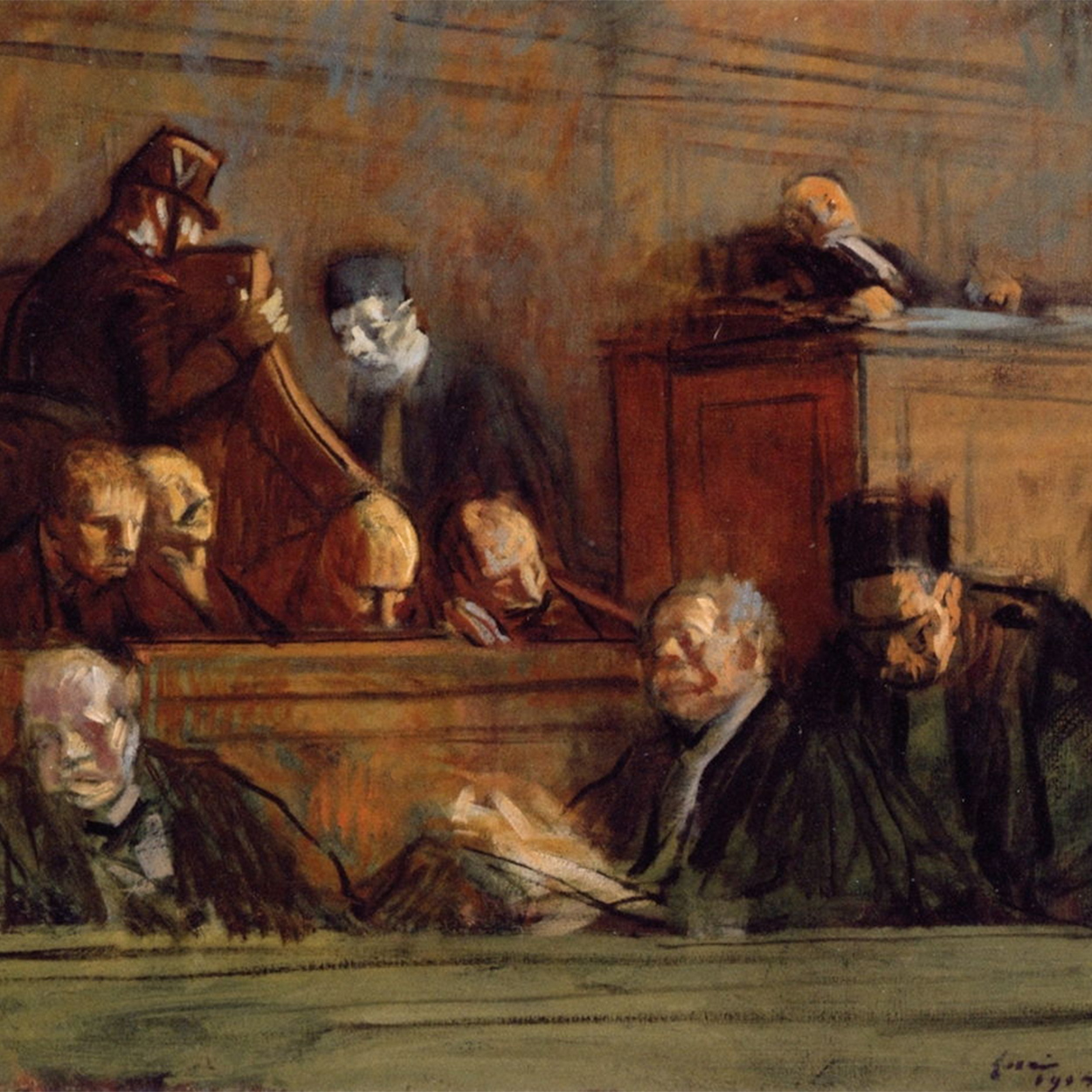The Germans would have a word for it, like they do for Sehnsucht—a feeling of longing for something unknown. But so far no descriptor exists for the sensation of coming across pre-planned events scribbled on a 2020 calendar that no longer exist. April’s dental and hair appointments. May’s banquet to laud the teenager’s track team season, which disappeared after the first meet. Or trips, like the June flights to celebrate a son’s commencement, canceled after six long years of PhD work. And what of July, August, September? Will anyone really go back to school, or will this ever be over?
Our family’s COVID losses arrived, mercifully, more in volume than in magnitude: high school’s spring rituals canceled, several college internships revoked, a church mission evacuated just as language fluency emerged, and living disruptions resulting in, at one point, eleven of us quarantined together—replete with in-laws, a granddaughter, all our idiosyncrasies, and grocery shortages. But we’ve hung on to our health, so far, and, also so far, our jobs, unlike many whose losses cut painfully deeper.
But we also experienced, along with the discomfiting sensation of a life unmoored and upended, some unexpected grace. During the quarantine phase, we played games, took walks, painted a weathered fence, and got out the sewing machine initially to make face masks, but also ended up sewing pajamas and a pink toddler dress. After the birth of a new grandson, we took our first family photo in five years with everyone present. And then, as restrictions lifted and everyone dispersed, the nomenclature came up short again. How to describe the phenomenon of missing the compensation that loss bestowed as the shared cooking, cleaning, and bonding came to an end and, of those still left, no one wants to go on a walk anymore?
What about the art of accepting what’s beyond our control and of harboring hope for better things to come? Can our losses at least give us that?
As if to compensate for a dearth of idioms with which to make sense of loss and its paradoxes, an abundance of literature expounds on the subject. As spring 2020’s global and personal losses persisted into summer, I revisited Rabbi David Wolpe’s contribution, Making Loss Matter: Creating Meaning in Difficult Times. Wolpe’s vision takes up Job’s refrain that Novel Coronavirus continues reiterating around the world: “The Lord gave, and the Lord hath taken away; blessed be the name of the Lord.” There is taking, but also giving, and even in loss, nature abhors a vacuum. Our deprivations, both minor and disastrous, make room for new matter—not just silver linings and opened windows to accompany closed doors, but alternate paths that replace shredded multi-colored coats with meaningful missions. If nothing else, when all is said and done, loss at least bestows wisdom if our hearts are open to it.
After all, according to Wolpe and the biblical and personal journeys he wends through, life consists of a continual series of losses to grow from. We lose our old selves—selves which can embarrass us in retrospect even while retaining “an unrecoverable magic”—yet we evolve into more mature selves and identities. We lose our childhood homes, repeating the story of leaving Eden for the threatening world at large, but find new ones, sometimes even inside ourselves. We lose in love, for as Wolpe points out, “there is no deep love without loss.” Yet we learn to love again, finding that “out of pain comes the steepest growth because the resources of the soul are most severely taxed.” And we also lose faith, both atheistic and religious, as we replace simplistic notions that the world must be just or fair, or that we will be spared suffering if we are good enough, with a deeper faith “tough and lasting…durable enough to outlast even its own periodic absence.”
For fastidious planners like me who calendar out months, even years at a time under the illusion that goal setting will somehow hold future demons at bay, a much-needed takeaway is Wolpe’s assertion that “acceptance of the unpredictability of life, the loss of the illusion of control, is a crucial mark of maturity… [for] life refuses to be broken and tamed.” The calendar items, jobs, and health that Covid-19 keeps erasing contribute not only to our sense of loss but compound our sense of powerlessness. Here, Wolpe’s chapter on lost dreams is particularly helpful, for dreams, indeed, get deferred, careers halted, businesses downturned, and good health ravaged. But losing our dreams “of what should have been,” writes Wolpe, gives us “the gift of what might be.” Just as juvenile delusions of grandeur give way to more realistic possibilities, a dream can be transformed, at least leaving “wisdom in its wake.”
Admittedly, I’m often tempted into poet Elizabeth Bishop’s more pessimistic vision. In her famous poem “One Art,” she posits that “the art of losing’s not too hard to master,” then ironically belies that premise by poignantly listing the things that “seem filled with the intent to be lost that their loss is no disaster”: “lost door keys, the hour badly spent,” “my mother’s watch,” “my last, or next-to-last, of three loved houses,” and finally, “losing you (the joking voice, a gesture I love) I shan’t have lied…though it may look like (Write it!) like disaster.”
Grace persists, too, even for us twenty-first-century wimps.
The art of losing is indeed hard to master and often feels like disaster even with all the practice life bestows. But what about the art of accepting what’s beyond our control and of harboring hope for better things to come? Can our losses at least give us that? Victor Frankl surrendered the manuscript of his life’s work when he entered a concentration camp but replaced it with the conviction that instead of writing about his ideas, he would have to live them out. He, of anyone, proved that, however powerless we find ourselves in certain conditions, we haven’t lost our ability to find meaning in them.
I should have re-visited Man’s Search for Meaning, Frankl’s lived testament, as news of the pandemic escalated and I panicked over potential sickness, lost opportunities, and retirement funds, and the demise of the easily traveled pre-pandemic world we’d known. Instead, I found a strange solace in reading Caroline Moorehead’s biography of Lucie de la Tour du Pin, Dancing to the Precipice. It doesn’t get much more out-of-control and loss-filled than going from being a French noble of the ancien regime (with your mother a lady-in-waiting to Marie Antoinette) to escaping the guillotine, losing several fortunes and homes, traipsing from country to country, and, in the cruelest twist of all, burying all but one of your beloved children.
Two centuries before Martin Seligman’s academically compelling observations on the power of positive psychology—that even after controlling for socio-economic and differing circumstances, those who rewire their thought processes toward hope over despair do better in careers, relationships, and health—Lucie seems the historical poster child for Seligman’s “learned optimism.” I particularly appreciated the biographer’s pauses after each blow to note the silence in Lucie’s correspondence or memoirs as she took time to grieve, recuperate, and reemerge with gratitude for what was left: a good marriage, a loyal friend, a new home, however small or shared, and life itself.
My ancestors’ personal histories offer similar perspectives. They make me feel wimpy with sagas of crossing oceans and western plains alongside parents and siblings dying. My parents’ journeys, too, entail childhoods in Great Depression small towns, young adult years during life upended by World War II, and child-rearing years that included receiving Vietnam War draft lottery numbers for my older brothers. But continually interspersing their losses is grace: the security of childhood homes, falling in love, getting a job, recovering from serious illness, and finding solace in religious observance and meaning in family obligations.
Grace persists, too, even for us twenty-first-century wimps. An online semester, a campus job, and a gig at a grocery store replaced my son-in-law’s and two college kids’ lost internships. The teenager with the forfeited track season searched in vain for a summer job until his older siblings’ former employer texted that, with business picking up in June, he could use a part-time fry cook. Nothing glamorous, but they are grateful for the work. The re-routed missionary from Asia has been temporarily reassigned, along with a small horde of other uprooted missionaries, to Bakersfield, California. His new mission president has already reached out on Zoom to welcome his displaced flock. And I’ve added a new item on the family calendar that doesn’t look like it will get erased: return to church on June 28, 2020.
The Lord gave, and the Lord hath taken away; blessed be the name of the Lord.

